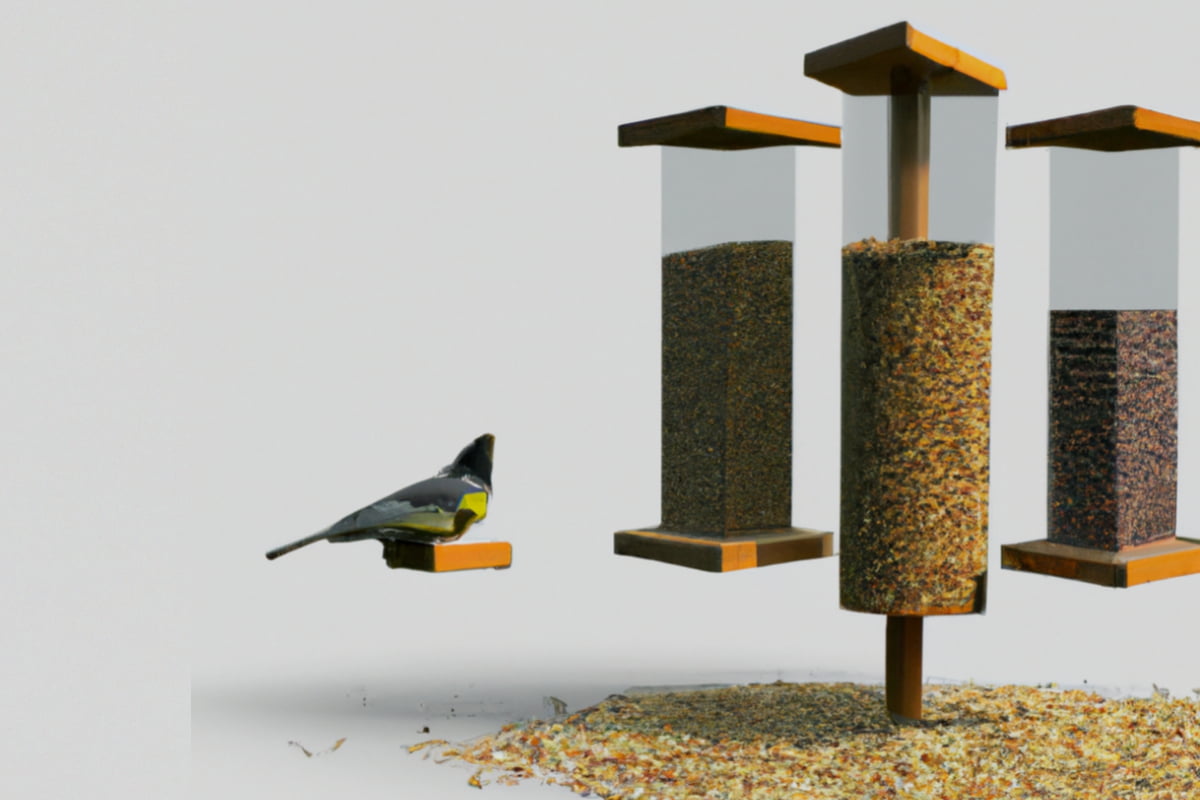If you’re an avid bird lover, you understand the importance of providing high-quality bird seeds to keep your feathered friends healthy and happy. However, it’s crucial to store your bird seed properly to maintain its freshness and nutritional value. In this article, we will explore the best methods for storing bird seed, address common issues with bird seed storage, and provide tips for ensuring the longevity of your bird seed.
The Problems of Birdseed Storage
Bird seeds, such as sunflower seeds and peanuts, are not only appealing to birds but also attract pests like raccoons, mice, and insects. Improper storage of birdseed can lead to contamination by mold and mildew, which can be fatal to birds. Additionally, if birdseed is exposed to moisture or extreme temperatures, it can rot and develop mold and mildew, making it inedible for certain bird species like bluebirds.
Why is it Important to Store Bird Seed Properly?
Properly storing bird seed is crucial to maintain its freshness and nutritional value. If birdseed is not stored correctly, it can become contaminated with mold and mildew, which can be harmful to birds. By storing bird seed in a cool, dry place, you can prevent the growth of mold and ensure that your feathered friends receive the nourishment they need.
The Best Ways to Store Bird Seed
The most effective way to store bird seed is in a cool, dry location. You can store the seed in a sealed container or a bird feeder specifically designed to preserve its freshness. If you opt for a container, it’s essential to regularly check and replenish the seed as needed. Additionally, ensure that the container is kept away from extreme temperatures and moisture to prevent spoilage.
How Often Should You Replace Bird Seed?
To ensure the freshness and nutritional value of bird seed, it’s recommended to replace it every few months. Regularly checking the seed and replenishing it as needed will help maintain its quality and prevent birds from consuming spoiled food.
How to Tell if Bird Seed is Bad
If bird seed is moldy or has a foul odor, it is considered bad and should be discarded. Regularly inspecting the seed for any signs of mold or unpleasant smells is crucial to ensure the health of your feathered friends.
What are the Best Types of Bird Seeds?
Sunflower seeds, peanuts, and other types of bird feed high in fat and protein are considered the best types of bird seeds. These seeds provide essential nutrients for birds and are highly appealing to them.
What are the Worst Types of Bird Seeds?
Moldy or foul-smelling bird seeds are considered the worst types and should be avoided. These seeds can be harmful to birds and may lead to health issues if consumed.
Tips on How to Store Bird Seed
To ensure the longevity of your bird seed, consider the following tips:
- Choose an Appropriate-Size Container: Use a container that can hold 3/4 cup of seeds, providing sufficient nutrition for most bird species. Adjust the quantity based on the size of the birds you are feeding.
- Keep Seeds Dry: Moisture can lead to mold growth and bacterial contamination. Store birdseed in airtight containers or bags to prevent moisture buildup.
- Don’t Leave Your Birds Hungry: If you have excess bird seed, consider composting it to break down the seeds into nutrients for plants.
- Keep Seeds Away from Pests: Store birdseed in airtight containers to prevent rodents and insects from accessing it. If pests are present, take appropriate measures to eliminate them.
- Use Seeds Within a Few Months: For optimal freshness, use birdseed within a few months of purchase. If you have excess seed, consider donating it to a local bird rescue organization or sharing it with a friend.
The Best Storage Containers for Bird Seed
When selecting a storage container for bird seed, prioritize airtight and moisture-proof options. These containers will help maintain the freshness of the seed and prevent mold and bacterial growth. Additionally, choose a container that is appropriate in size for the amount of seed you have. A container that can hold 3/4 cup of seeds is generally suitable for most bird species.
Conclusion
Properly storing bird seed is essential to preserve its freshness and nutritional value. By storing bird seed in a cool, dry place and using airtight and moisture-proof containers, you can ensure that your feathered friends receive the best quality food. Regularly checking the seed for mold or foul odors and replenishing it as needed will further contribute to their well-being.
FAQs About Storing Bird Seed
Q: What is the best way to store bird seed?
A: The best way to store bird seed is in a cool, dry place. You can use a sealed container or a bird feeder designed for seed storage.
Q: How often should you replace bird seed?
A: It is recommended to replace bird seed every few months to maintain its freshness and nutritional value.
Q: What are the best types of bird seeds?
A: Sunflower seeds, peanuts, and other bird feed high in fat and protein are considered the best types of bird seeds.
Q: What are the worst types of bird seeds?
A: Moldy or foul-smelling bird seeds should be avoided as they can be harmful to birds.
Q: What is the shelf life of bird seed?
A: The shelf life of bird seed varies depending on the type of seed and storage conditions. On average, bird seed can last between 6 and 12 months.
Q: How do you make bird seed last longer?
A: To extend the shelf life of bird seed, store it in a cool, dry place in an airtight container. Regularly check the seed for freshness and replenish as needed.
Q: How can you tell if bird seed is bad?
A: Moldy or foul-smelling bird seed is a sign that it is bad and should not be consumed by birds.
